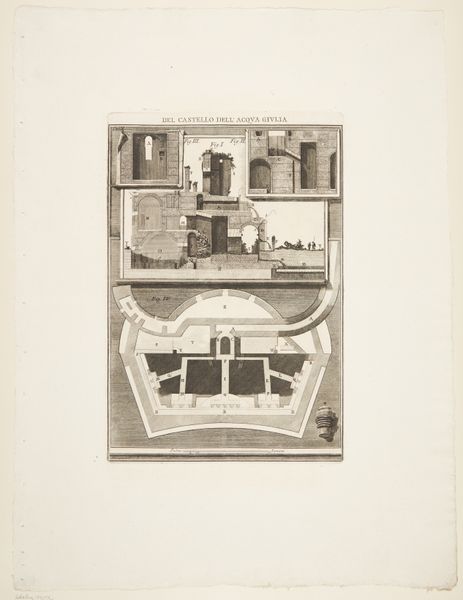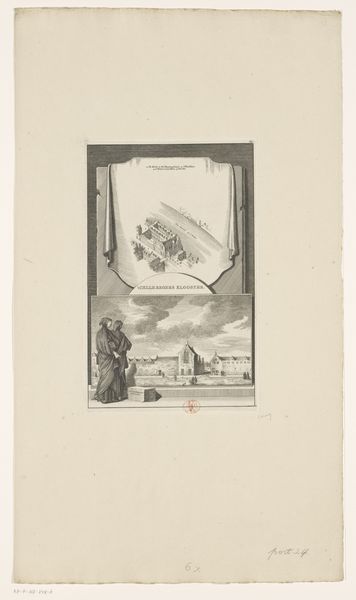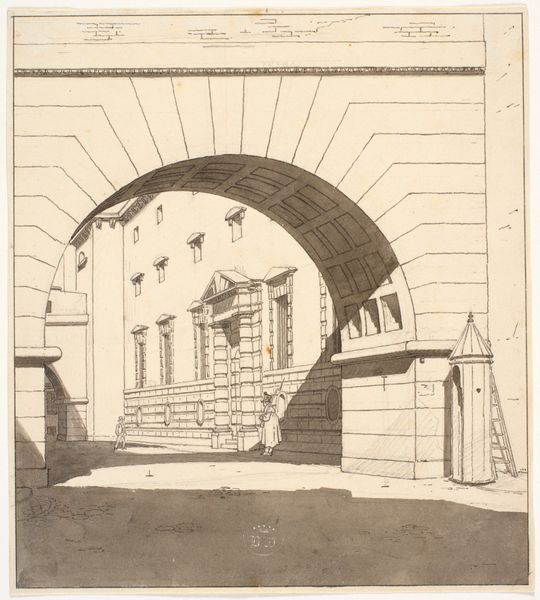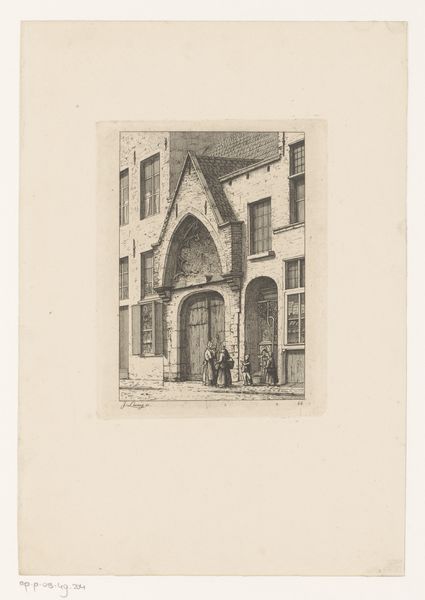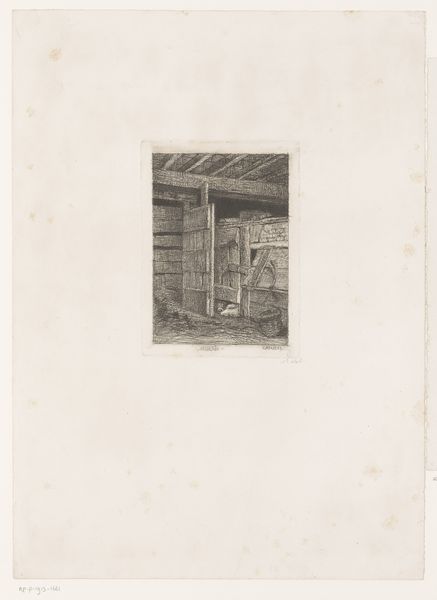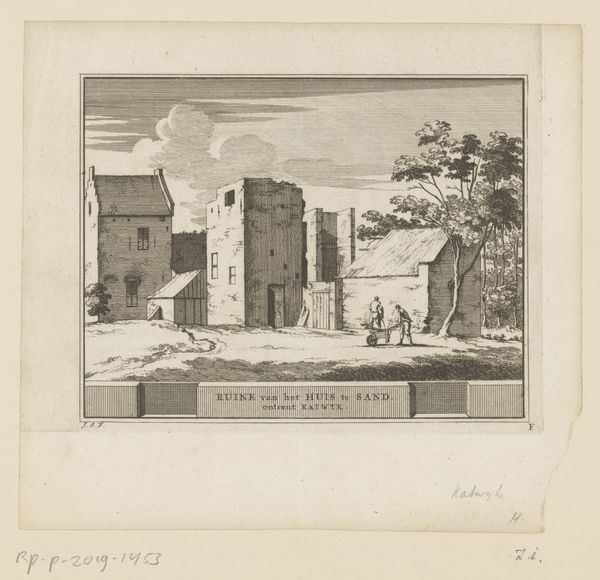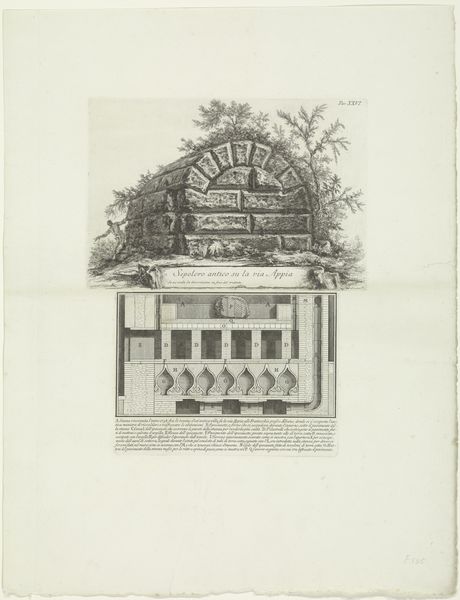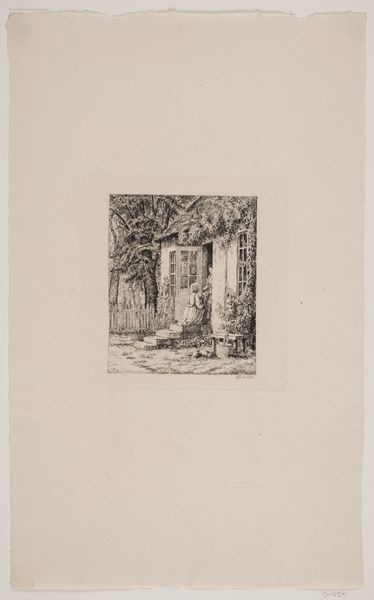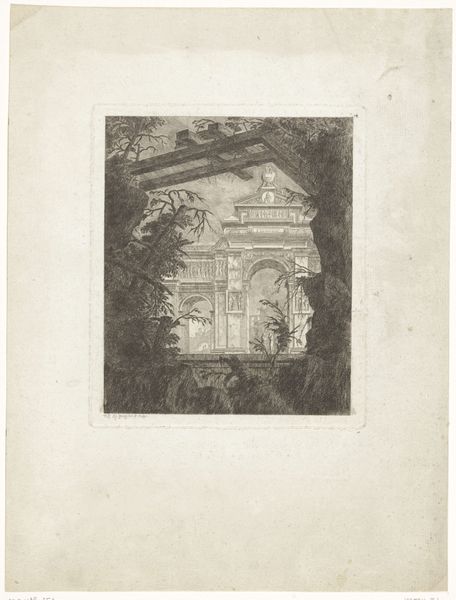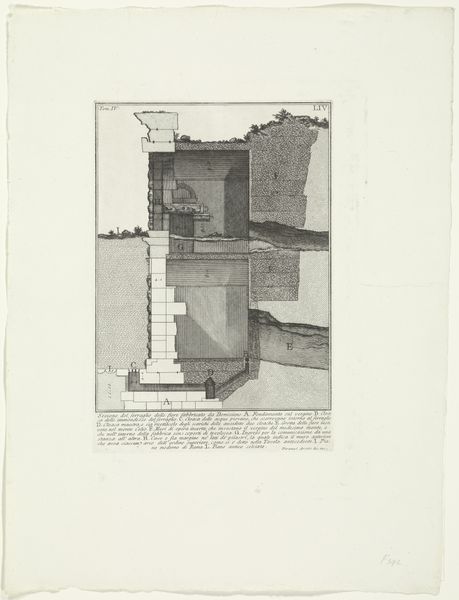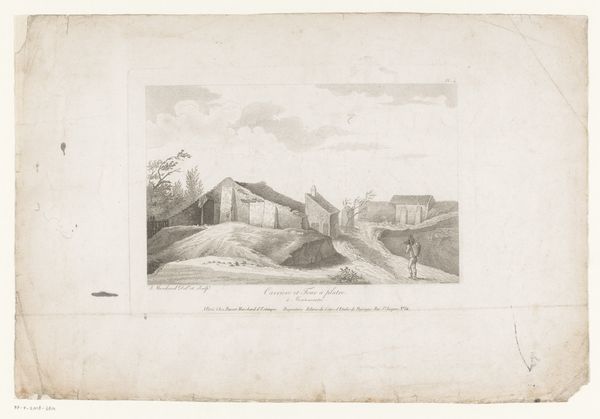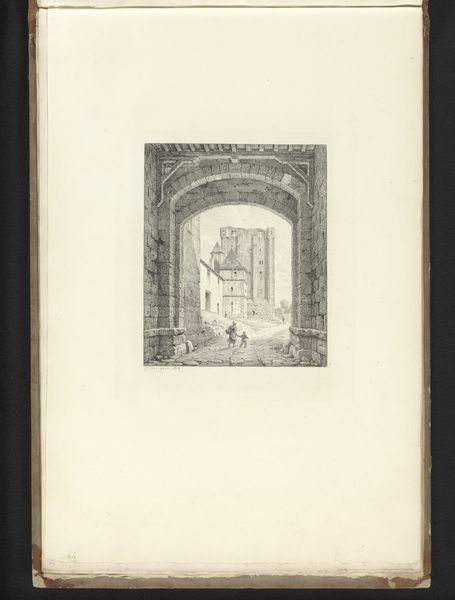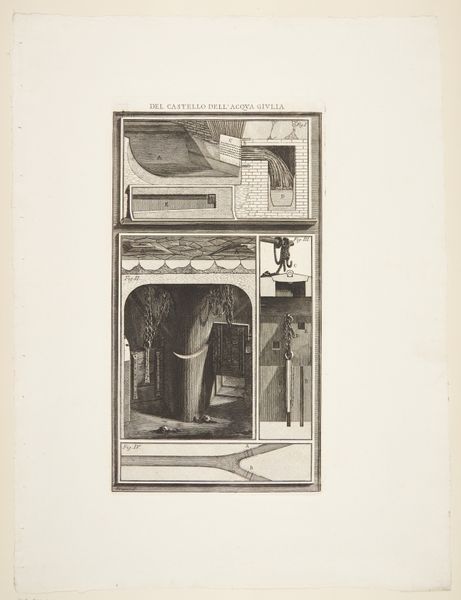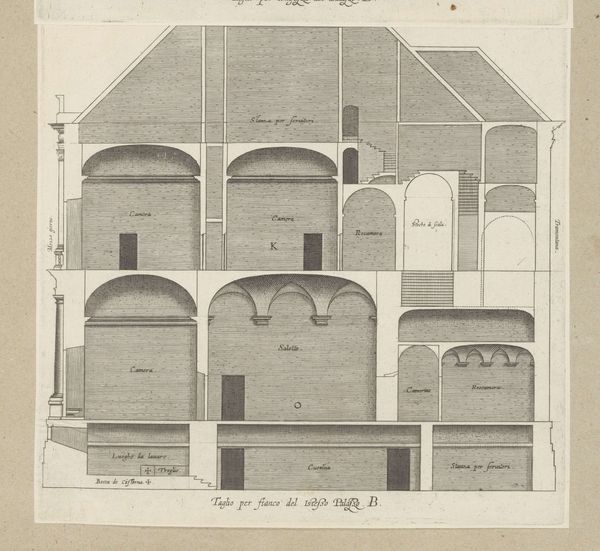
drawing, print, etching, engraving, architecture
#
drawing
# print
#
etching
#
geometric
#
history-painting
#
italian-renaissance
#
engraving
#
architecture
Dimensions: 593 mm (height) x 445 mm (width) (bladmaal), 345 mm (height) x 235 mm (width) (plademaal)
This print, "Details of construction," was made in the 18th century by Giovanni Battista Piranesi. It's an etching, meaning that the image was incised into a metal plate, inked, and then printed onto paper. Piranesi was fascinated by Roman antiquity, and often depicted its architectural ruins. What’s so interesting here is his focus on the underlying logic of construction. We see exploded diagrams showing the stones used to make arches, vaults, and walls. Look at how Piranesi uses line to differentiate the textures and weights of the stones. Of course, there’s something a bit misleading about the image, too. It presents a cool, rational analysis of architecture, but the actual work of quarrying, transporting, and placing these massive stones would have involved hard labor. This print makes that difficult, physical process seem elegant. Ultimately, Piranesi is showing us that even the most monumental buildings are fundamentally made of mundane materials, assembled according to rational principles. It’s a kind of democratizing vision of architecture, reminding us that even the grandest achievements are the result of human effort.
Comments
No comments
Be the first to comment and join the conversation on the ultimate creative platform.
